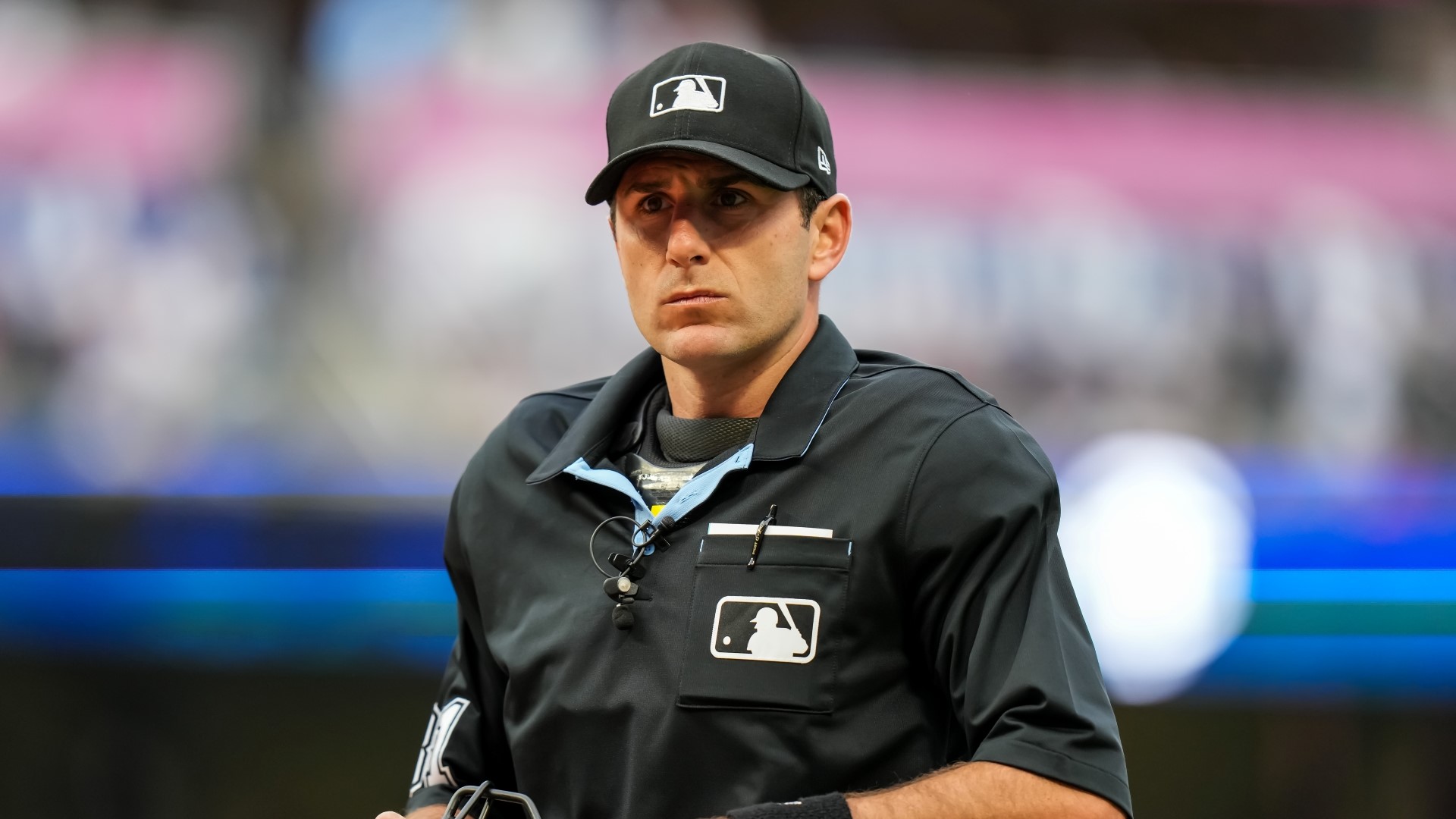Major League Baseball announced on Monday that umpire Pat Hoberg, famous for calling a perfect game in the 2022 World Series, was officially fired for violating the league's gambling policy. The news that Hoberg would be disciplined broke in June of last year, though he appealed the decision then, denying that he bet on baseball.
According to MLB's investigation, Hoberg had shared a legal sports betting account with a friend he met at a poker tournament in 2014, and, after sports betting was legalized in Iowa in 2019, asked his friend to place non-baseball bets for him. His friend, a professional poker player, did bet on baseball, and later shared his account login with Hoberg. (Communication was done over Telegram; both Hoberg and his friend deleted their conversation logs after MLB's investigation began, because, according to Hoberg, he was embarrassed by the volume of his bets.) When Hoberg opened a sports betting account in his own name, the operator flagged that Hoberg's device was also associated with another account that had bet on baseball, and MLB opened an investigation.
Hoberg's friend's account placed 141 baseball bets, according to MLB, including eight bets on five games that Hoberg umpired. The investigation found that while the baseball bets were overall profitable, there was no indication that the bets were connected to game-fixing, or that Hoberg's calls manipulated or influenced any of the bets on his games. Hoberg's greatest, most visible defense to the general public is that he was exceptionally good at his job of calling balls and strikes. Still, his "conduct and extremely poor judgment" was enough, from MLB's perspective, to justify his firing, which it upheld in spite of the appeal.
Back to me: I noted Pat Hoberg's absence in a blog I wrote about poor MLB umpiring early in the 2024 season, before the news initially broke that he was disciplined for violating league gambling policies. That Hoberg's judgment was "extremely poor," and that this "extremely poor judgment" would cast a cloud over his umpiring calls irrespective of whether he actually manipulated games, is undeniable. The proliferation of sports gambling would always raise scrutiny on umpires and referees' decision-making. Here an umpire who was very good at his job, but who made the cardinal sin of having "extremely poor judgment," has been caught by that scrutiny, rather than one of the many bad umpires out there. That is a very unfortunate consequence, if bitterly apt: Of all possible outcomes, of course baseball and its fans get the very worst one.
In that way, Hoberg's case stems from the same issue that dogged MLB when Shohei Ohtani's name came up in an investigation of illegal gambling thanks to his interpreter, Ippei Mizuhara. (Mizuhara coincidentally came to know his bookie through a poker match, as Hoberg did his friend.) An industry intent on getting its hooks into anyone and everyone remotely interested in sports will eventually touch the people directly involved in them. Whether Mizuhara, Ohtani, or Hoberg actually bet on baseball is only so relevant; their names being placed in close proximity to the practice is bad enough. While Hoberg paid for his "extremely poor judgment" with his job, MLB paid extra in reputational costs and losing one of the best umpires in baseball.
Hoberg can apply for reinstatement in 2026. I don't like his odds.






